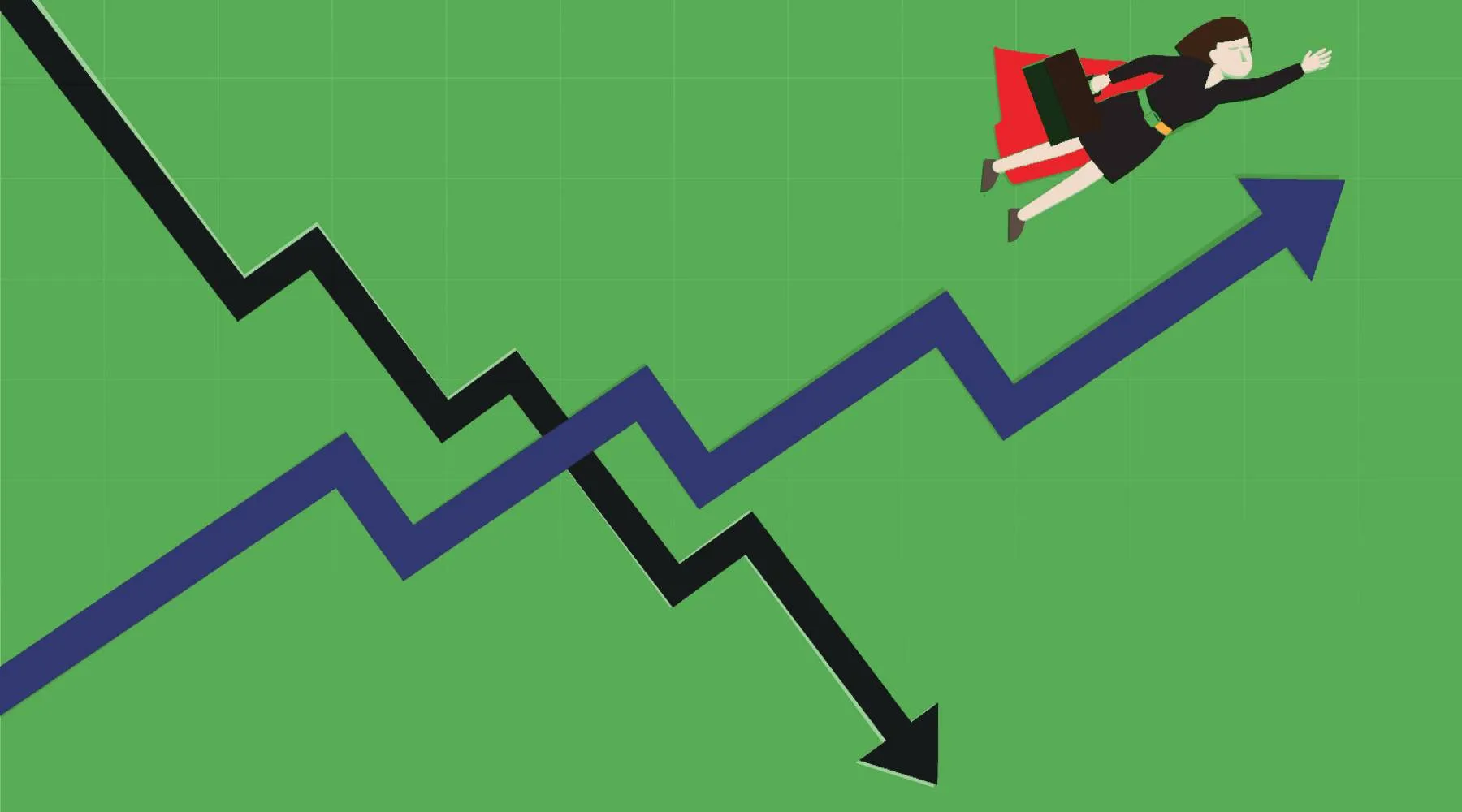5 assets investors are buying in the dip: From commodities to ETFs

Wondering what others are buying? Here are the top assets popular with retail investors during the recent market pull-back.
Stock markets globally have endured a bruising year so far.
Domestically, our benchmark the ASX 200 index is down nearly 15% year to date. Worst still is the US, where the S&P 500 is currently in a bear market, down 23%. The tech-heavy NASDAQ-100 has performed even worse, sliding nearly 32% already this year.
A confluence of factors, including supply chain shocks due to the pandemic, the war in Ukraine and slowing economic growth have contributed to this steep decline.
Now, rapid interest rate hikes from central banks looking to rein in inflation means investors cannot expect any relief from this volatility anytime soon.
eToro market analyst Josh Gilbert said that markets are currently experiencing the highest level of volatility since 2020, which coincides with the COVID-19 crash and subsequent rally.
"The bigger and longer this interest rate upcycle goes, the greater the risk of an economic recession and the sharp fall in company earnings this would bring," Gilbert told Finder.
So how should investors play these recent market crashes and still generate returns?
Here are some of the best options if investors want to "buy the dip".
1. Commodities
Commodities are basic natural resources such as oil, food and metals and are often thought of as the building blocks of the economy.
Most commodities are considered an excellent hedge against inflation and serve the crucial purpose of diversifying the portfolio.
On the downside, they can be highly volatile based on supply and demand factors, as reflected in the price of iron ore which has ranged between US$85 and $230 a tonne over the last 18 months.
Generally, commodities can be traded in physical form via commodities exchange-traded funds (ETFs) or through contract for differences (CFDs) or futures contracts.
Commodities have been the golden child of 2022, with Bloomberg's commodity index climbing nearly 30%. Oil has been among the best-performing commodities this year with a jump of a staggering 60% because of tight supplies amid the war in Ukraine and recovering demand after the coronavirus pandemic.
Given that commodities have performed so well, it's no surprise that the Energy Select Sector ETF (NYSE: XLE) is one of the top-performing funds in 2022, up 40% this year. The ETF comprises some of the biggest names in the industry, including Exxon Mobil and Chevron Corp, with 91% of its allocation in oil, gas and consumable fuels.
2. Thematic ETFs
Long-term investors consider down markets as an opportunity to add to or rebalance their portfolios. A time-honoured strategy for dealing with market downturns is to move money from high-growth sectors to those offering more stable returns.
"Defensive stocks took a back seat throughout 2020 and 2021 as high-flying tech stocks grasped investors' attention," Gilbert says.
"Now, as a result of recent market movements, investors are rotating to defensive for stable earnings and dividends, especially as the macro risks continue to rise."
Some of eToro's best-performing portfolios in 2022 have included sectors such as consumer staples, health care and utilities, which are generally less exposed to rising economic growth risks and will provide robust dividends.
For instance, its model Public Utilities Stocks "smart portfolio", which focuses on providers of basic amenities such as water and electricity, has returned over 7% in the last 12 months.
Similarly, its Dividend Growth Stocks portfolio, which includes big names such as Coca-Cola, McDonald's, Walmart and others, has benefited from the focus on health care, energy and consumer staple sectors that have all done well this year, with solid profits and shareholder payouts.
Some investors taking a longer-term view on markets are also seeing the sell-off in sectors such as technology as an opportunity, given that there have been steep falls of 70–90% on popular stocks such as Block, Zoom and Netflix.
3. Traditional ETFs
An ETF is basically a basket of securities that trades on an exchange just like a stock.
Given their far lower management fees compared to managed funds, ETFs offer a low-cost way for less active investors to earn a return similar to an index or a commodity.
The value of the ETF goes up or down with the index or asset they are tracking. However, they are considered a useful weapon to help manage the volatility risk because they typically trade very closely to their net asset value.
Index funds such as ETFs also offer the advantage of diversification and offer a wide variety of underlying assets that can be tracked. These include a benchmark index such as the S&P/ASX 200 to commodities such as gold, natural resources or agricultural products or even sector-specific funds such as energy ETFs or real estate ETFs to thematic ones like ethical investments.
4. Crypto
Cryptocurrency has felt the full force of the selling pressure in 2022, with Bitcoin sliding around 70% from its all-time high. However, despite major drawdowns across the crypto space, the development of crypto and its use cases as well as regulation of the industry is continuing regardless.
Diehard crypto believers continue to take the opportunity to put money into Bitcoin and its peers like Ethereum to buy the dip despite ongoing market carnage. These investors believe that the blockchain technologies underpinning cryptoassets have good firm grounding for the future and are seeing a growing group of people that now accept the digital assets in the real world.
The more assets you own, the more diversified you become.
And while these are only thought starters, it might help an investor create a diversified portfolio. Which of the above options an investor chooses is often dependent on their risk profile and time horizon. Multi-asset platforms such as eToro offer broad exposure to all these assets on a single platform.
Trade with eToro
Compare other products
We currently don't have that product, but here are others to consider:
How we picked theseCompare other cryptocurrency trading platforms here
Past performance is not an indication of future results. Trading history presented is less than 5 complete years may not suffice as basis for investment decision.
Crypto assets are unregulated & highly speculative. No consumer protection. Capital at risk.

